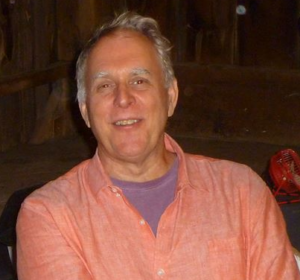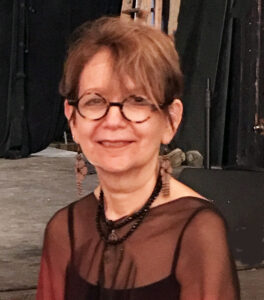Dance With Teachers Winter Weekend 2024
Alix Cordray 💖
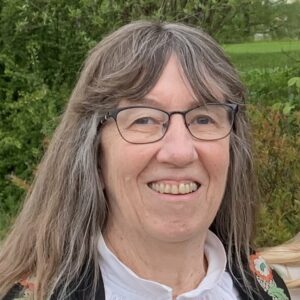 Alix Cordray is an active Norwegian dance instructor in Oslo and internationally. She currently teaches two recreational groups in the Oslo area plus numerous workshops. Both groups, “Hordaringen” and “Springar’n”, perform regularly and have visited the US.
Alix Cordray is an active Norwegian dance instructor in Oslo and internationally. She currently teaches two recreational groups in the Oslo area plus numerous workshops. Both groups, “Hordaringen” and “Springar’n”, perform regularly and have visited the US.
Alix grew up in international folk dancing in the San Francisco Bay Area. She danced with and later directed Westwind International Folk Ensemble and taught at the Mandala in San Francisco.
Alix is also a trained dancer, including extensive training in modern dance (Graham technique), a Masters of Arts in dance from Mills College, Royal Scottish Country Dance Society teacher certification, and university work in Norwegian dance in Norway.
She moved to Norway in 1975, where she has gradually focused more and more on Norwegian dance. Starting in 1977, she has often toured the US teaching Norwegian dance, including several appearances at Stockton Folk Dance Camp. In recent years, she has taught Norwegian dances to enthusiasts in many countries including the USA, Canada, Great Britain, France, Denmark, Sweden, and Russia.
Steve Kotansky 💖
Steve Kotansky was raised in the San Francisco Bay area where he started international folk dancing as a high school student. Besides, regular folk dancing, he performed with the Westwind International Folk Ensemble (North), and the SF Russian Dance Ensemble. In 1970 he made his first research trip to Hungary and former Yugoslavia. He returned to study dance and Slavic Languages at UCLA. While living in Los Angeles, he performed with AMAN Folk Ensemble and Vincent Evanchuk’s Ukrainian dance troupe. He was also a regularly featured teacher at many of the folk dance “cafes” popular in the 1970’s.
In 1972, Steve received the “Rubi Vucheta” scholarship to study dance in former Yugoslavia, where he traveled with Robert Leibman recording and filming village dance throughout the country. He remained in Europe, living in Munich, Germany, where he worked with ethnic communities, taught regular classes, organized workshops, and co-founded the GAJDA Folklore Ensemble. He took advantage of his proximity to the Balkans and Eastern Europe, pursuing his study and research of their dance cultures. He taught dance all over Western Europe, choreographed for various groups, and began to organize folk dance workshops and tours to Hungary, Serbia, and Macedonia.
He returned to the U.S.A in 1980 to teach at SFDC as well as most major North America dance camps/weekend workshops. Steve lives in NY with his wife Susan and their two (grown) children. They co-founded the GUZSALY Hungarian Dance Ensemble and have choreographed for many Hungarian and International Dance Ensembles in North America. Steve is know for his passion for dance and extensive knowledge of dances and style of Eastern and South-Eastern European Dance. Currently, he has been teaching dances from Macedonia, Serbia, the Albanian diaspora, Bulgaria, Romania (Csángó), and the Roma populations from these areas.
Susan Kotansky 💖
Susan Kotansky performed with the George Tomov, Kálmán Magyar’s Hungária, and Ungaresca ensembles in New York City. She spent a year living in Budapest, attending the Folkdance Section of the State Ballet Institute and studied with the Bartók Ensemble under the direction of Sándor Timár. She has made many research trips to Hungary and Transylvania, and together with her husband Stephen Kotansky founded the Guzsaly Ensemble.
Stephen and Susan were instrumental in planting the seeds for the táncház movement in the U.S., teaching classes and inviting teachers from Hungary. Together they teach Hungarian and Balkan dance classes worldwide. More recently Steve and Susan have done research on Albanian dance and they are about to take their second trip to Albania.
Roo Lester 💖
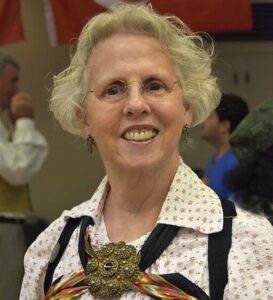
Roo Lester began folk dancing as part of rainy-day phys ed at school and hasn’t stopped since. A college folk dance class subsequently inspired her to pursue and complete a Master of Arts in Dance Ethnology from UCLA; she later turned toward a specialty in Scandinavian dance after taking a class in Norwegian folk dancing from Ingvar and Jofrid Sodal.
Since 1983, Roo has traveled extensively in Norway and Sweden, studying dance and participating in dance and music festivals, competitions and other events. Known in Scandinavia for her keen interest and knowledge of music, dance and cultural traditions, she has served as the American coordinator for several dance and music camps in Sweden and Norway. As a dance educator and ethnologist, Roo has taught Scandinavian dancing throughout the U.S. and beyond for many years and has published a number of articles on Norwegian dances, as well as a guide to Scandinavian Dance Basics.
Roo’s life work in dance has taken many interesting twists and turns, from teaching folk dance in the Los Angeles area public schools, to a 3-month research trip to Spain to study Basque dance. Roo was a director of Barátság Hungarian Music and Dance Camp, and for over 20 years has served as a director of Scandia Camp Mendocino. She had a stint in the television industry working on an episode of M*A*S*H called “Inga.” During the pandemic, Roo has worked with dance in a variety of ways over Zoom, both as a teacher and assisting other dance programs to reach widespread, house-bound audiences.
When she is not traveling, Roo lives in the southwestern suburbs of the Chicago metropolitan area with her husband and frequent dance partner, Larry Harding.
Lee Otterholt 💖
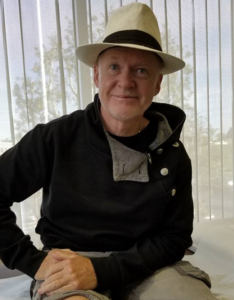 Lee Otterholt, born in the US of Norwegian-American parents, lived and worked most of his life in Norway as a professional dancer, dance teacher and choreographer. In Norway he founded and led the Center for International Folk Dance in Oslo, Norway. He was a professor of folkloristic dance at the Norwegian National College of Ballet and at the University College of Oslo. He was responsible for the establishment of 4 still-active folk dance clubs and 3 performing groups in Norway. He led these groups to festivals all over Europe. He also produced teaching materials (videos, books and CDs) on folk dance for use in the Norwegian school system. He has a professional education in choreography and was one of the choreographers of the Opening Ceremony of the Winter Olympic Games in Lillehammer, Norway in 1994.
Lee Otterholt, born in the US of Norwegian-American parents, lived and worked most of his life in Norway as a professional dancer, dance teacher and choreographer. In Norway he founded and led the Center for International Folk Dance in Oslo, Norway. He was a professor of folkloristic dance at the Norwegian National College of Ballet and at the University College of Oslo. He was responsible for the establishment of 4 still-active folk dance clubs and 3 performing groups in Norway. He led these groups to festivals all over Europe. He also produced teaching materials (videos, books and CDs) on folk dance for use in the Norwegian school system. He has a professional education in choreography and was one of the choreographers of the Opening Ceremony of the Winter Olympic Games in Lillehammer, Norway in 1994.
The last 20 years Lee Otterholt has been active on the international scene, teaching international folk dance (“Balkan and Beyond”) at festivals, workshops and camps in Europe, the US and Asia and leading folk dance cruises and tours to many part of the world. He moved to the US, to Laguna Beach, California in 2003. There he founded and led the international folk dance performing group “SYRTAKI,” and he is the lead singer in the BalkanBeat band “Zimzala.” He teaches regularly at local folk dance clubs in the area and teaches his own recreational folk dance group every Wednesday and Sunday evening at Laguna Woods. He is the chairman of the Laguna Folk Dance Festival. In 2015 he received the National Dance Award, presented at the San Antonio Folk Dance Festival.
Andy Taylor-Blenis 💖
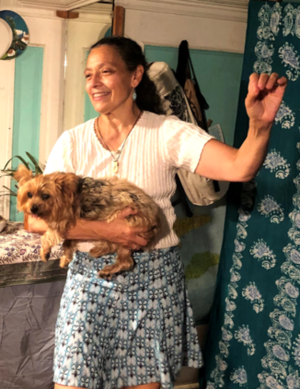 Andy Taylor-Blenis started International Folk dancing at a young age under the guidance of her parents, Marianne and Conny Taylor, cofounders of the Folk Arts Center of NE. Her mother, Marianne Taylor, was on Staff at Stockton many times.
Andy Taylor-Blenis started International Folk dancing at a young age under the guidance of her parents, Marianne and Conny Taylor, cofounders of the Folk Arts Center of NE. Her mother, Marianne Taylor, was on Staff at Stockton many times.
Andy was certified in Scottish Country Dance at 17 and graduated with a BFA in dance and a minor in Social Anthropology. She continues to teach International Dance in schools through Dance Collective/ Mass Movement & BalletRox through residencies. Andy is the artistic director of Mladost Folk Ensemble, which she founded upon the death of her father in 2006 and continues in the spirit of her parents’ work. She recorded and produced a CD of Austrian jodels printed in a book by Werner von Trapp and produced by Conny Taylor.
Since the beginning of the pandemic, Andy’s generous students have stepped up and assisted her to get on Zoom. She has continued as artistic director to the Wheaton College Dance Company on Zoom. In addition, she teaches her youth performing group, Mladost Folk Ensemble, both virtually and returning to in-person. They have produced two video collages. Her intergenerational group, Back Pocket Dancers, have finished one video for virtual festivals but look forward to an in-person performance in Sep. 2021 at the Dance for World Community Festival in Cambridge, MA.
Andy has continued to teach both her Modern 55+ and Modern/Jazz classes online and has begun to teach select classes in-person. She has taught Focus on Form virtual classes for the RSCDS NoVA and Boston Branches. These classes help dancers to get ready for the physical demands of in-person dances. The silver lining for Andy and the Tuesday Community Dance is that they have been welcoming participants from all over the world, just as Stockton and so many other festivals and local dances have done.

